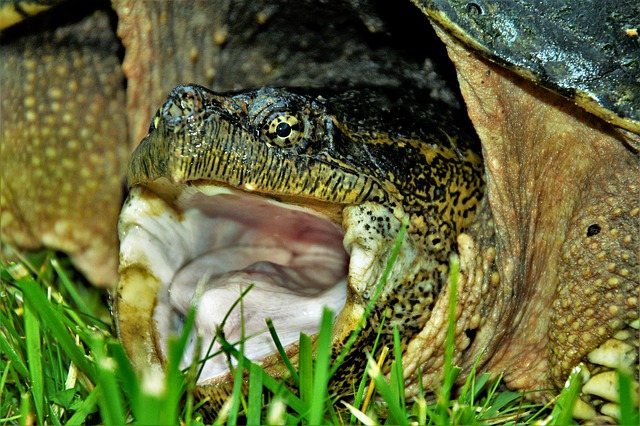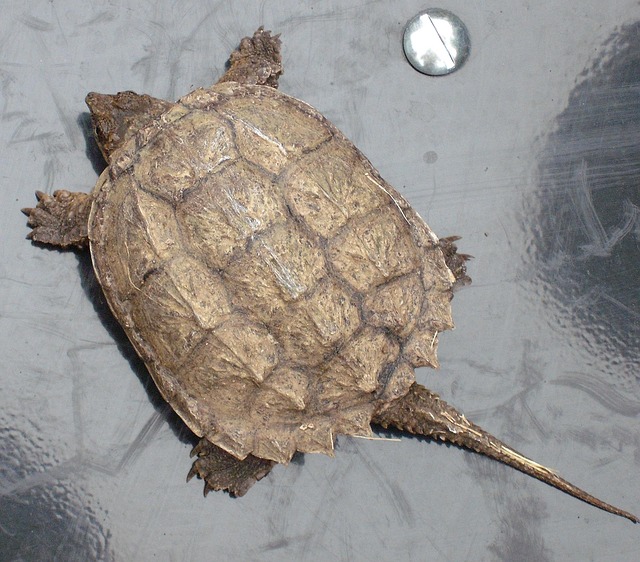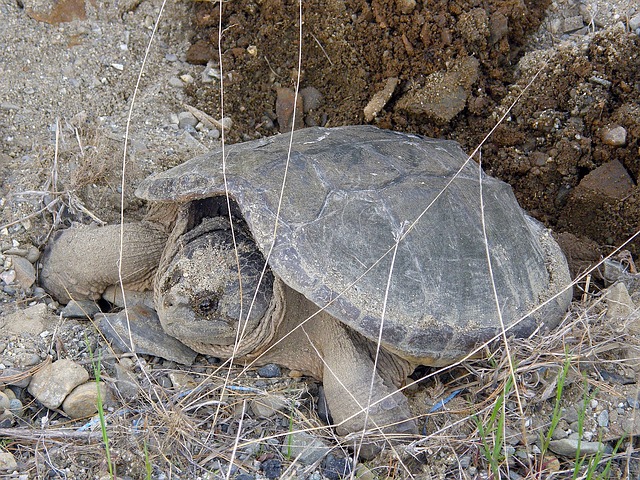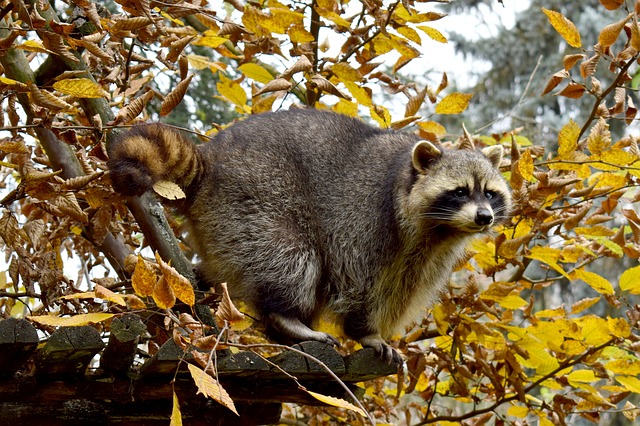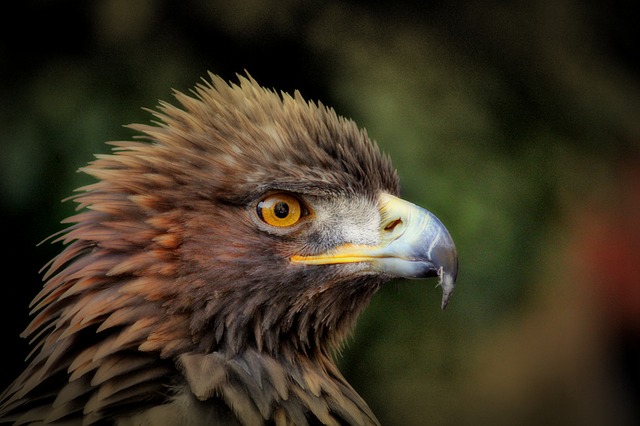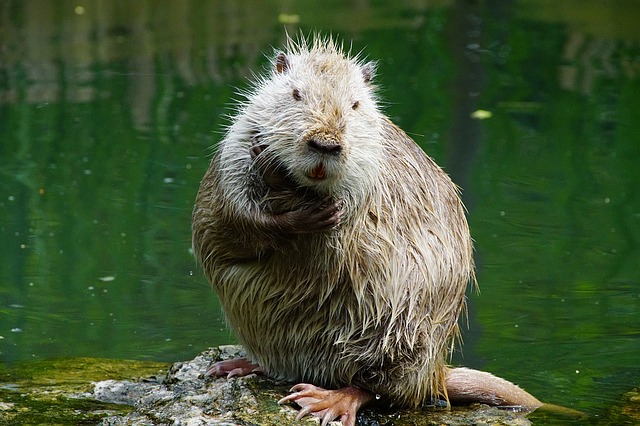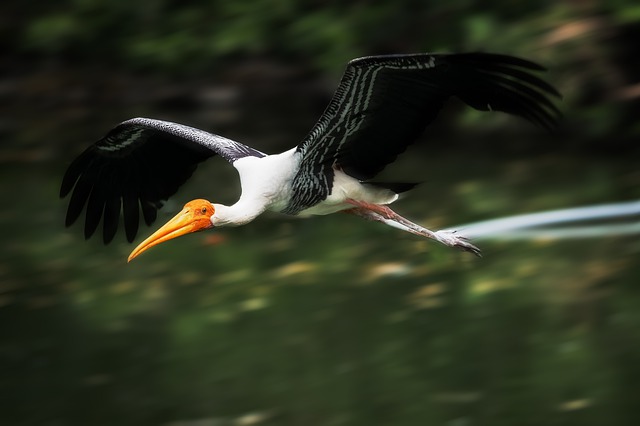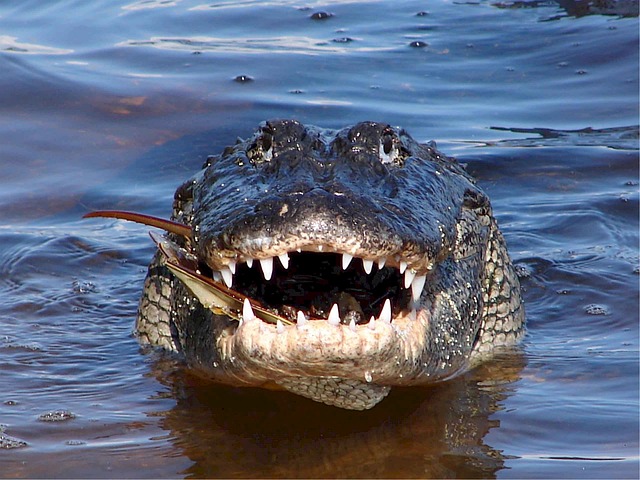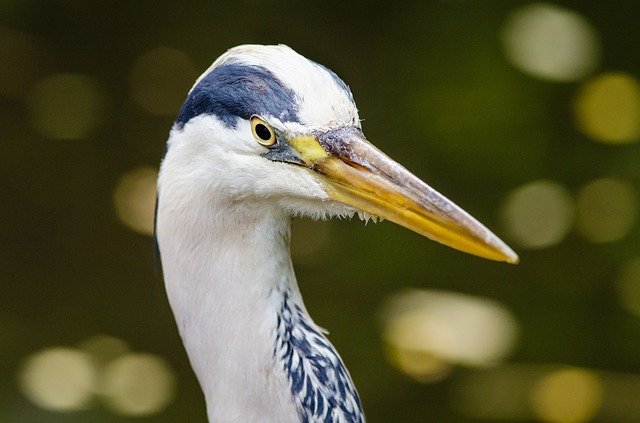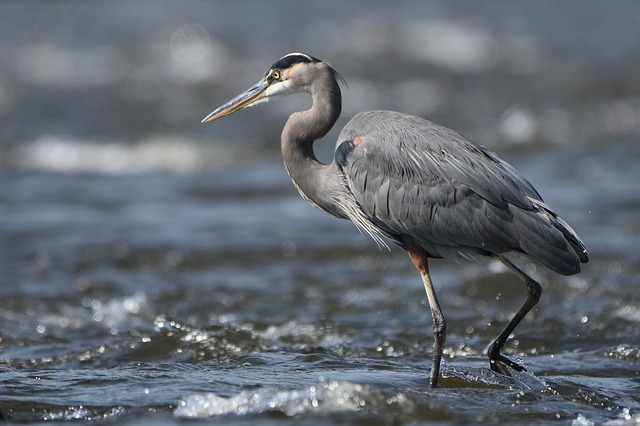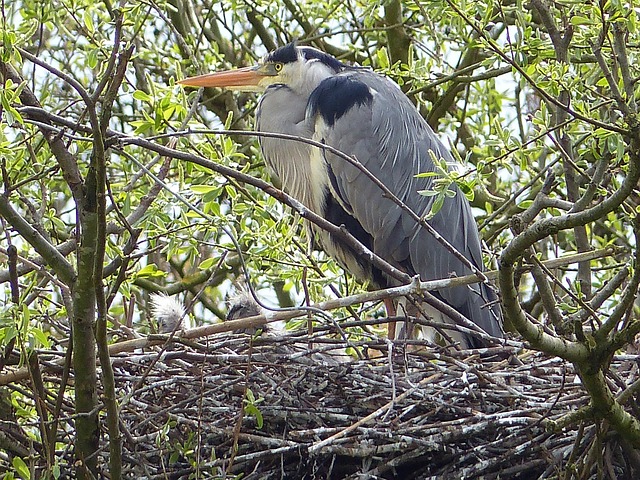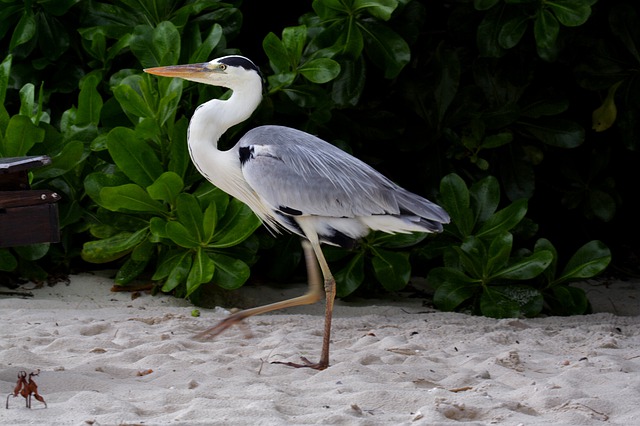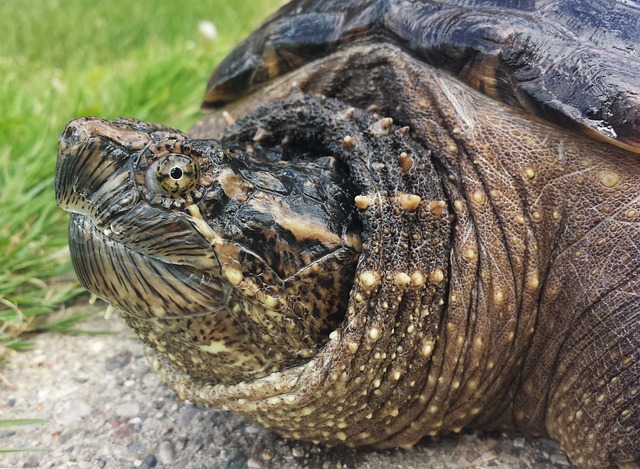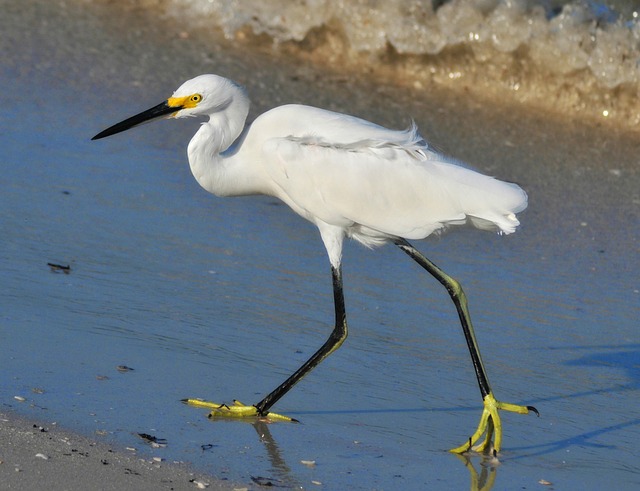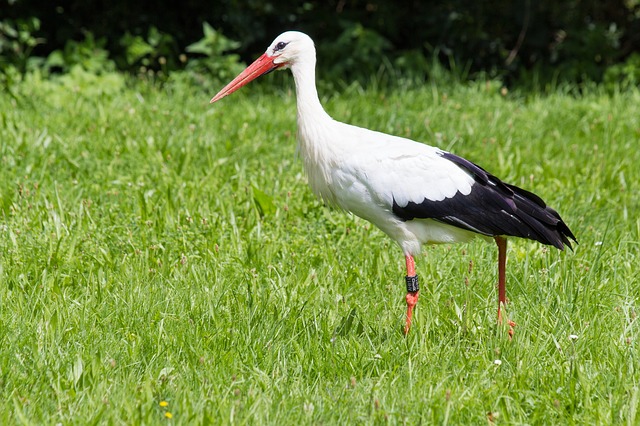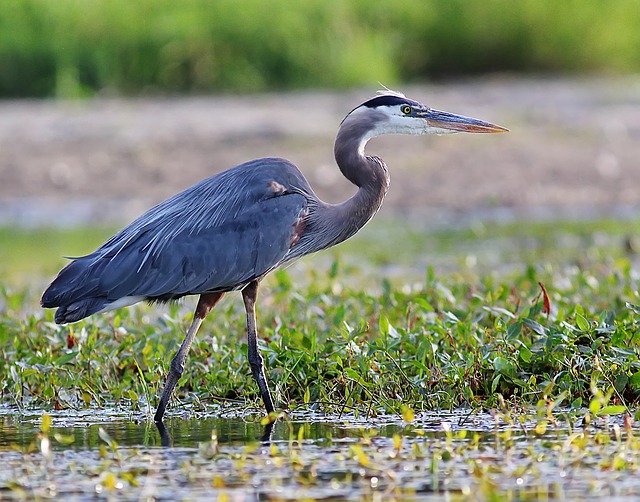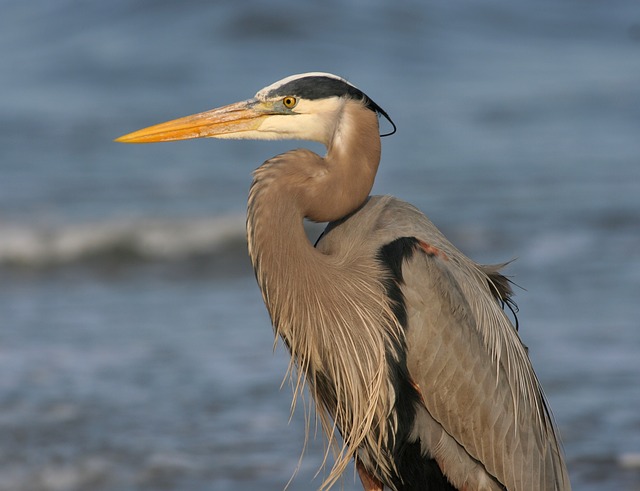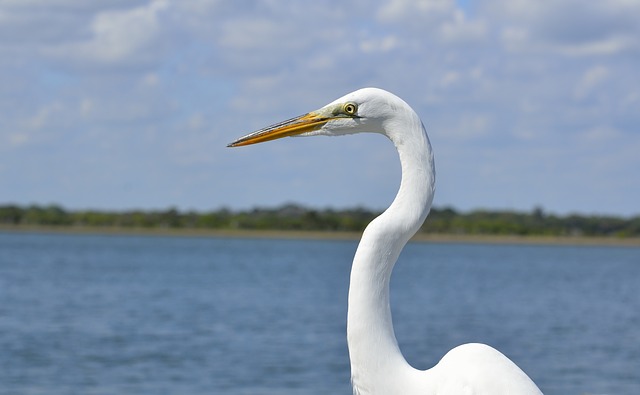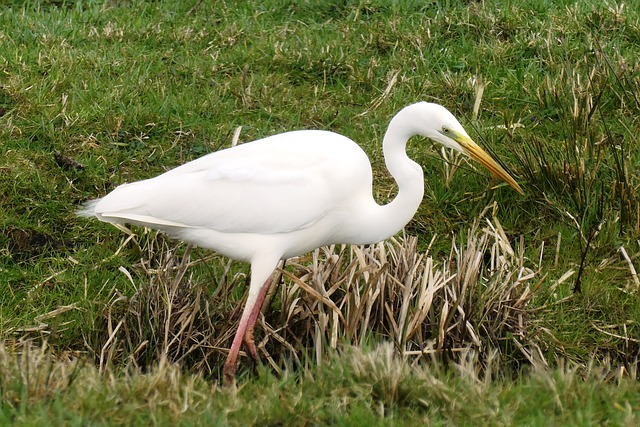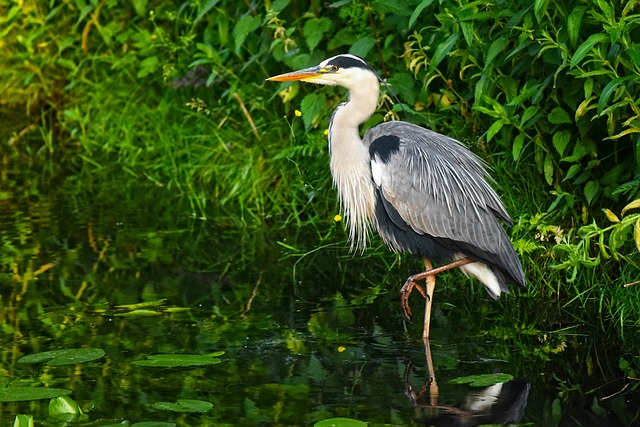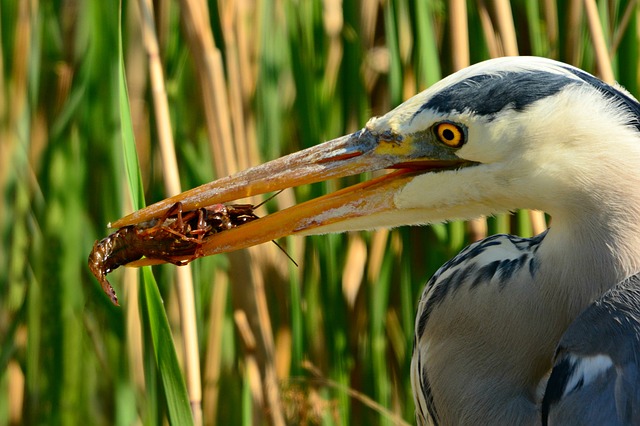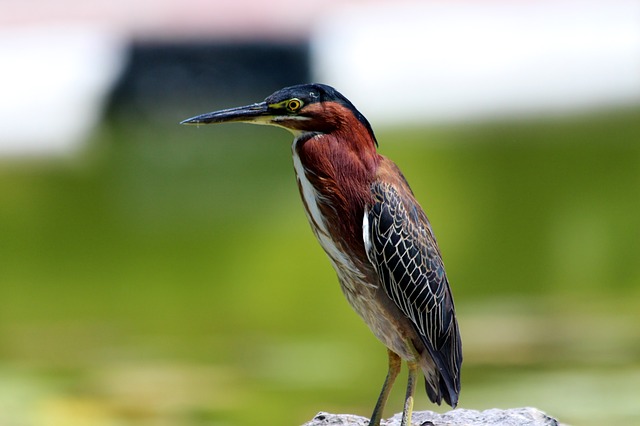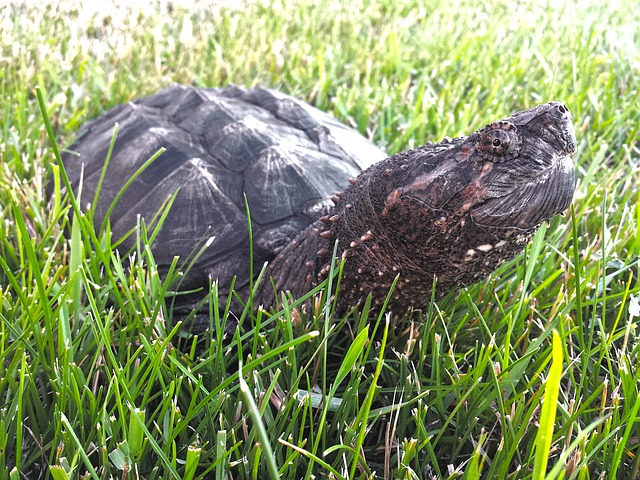
The common snapping turtle is known for its aggressive attitude and powerful jaws. There are many amazing things you’ll want to know about these large and ornery reptiles. So here are some of the top common snapping turtle facts.
They Aren’t Picky Eaters
The common snapping turtle will eat just about anything that it can catch and kill. This includes fish, other turtles, frogs, snakes, insects, aquatic mammals, and even sometimes waterfowl. They also feed on aquatic vegetation and the carcasses of any dead animals that they may find in the water as well.
Snapping Turtles Are Typically More Aggressive On Land
When encountered on land snapping turtles are often highly aggressive. They attack potential threats by raising their body and lunging at them. However one of the facts about snapping turtles that many people don’t know is that when they’re encountered in the water they prefer to flee instead. They often will and hide underwater and many times in the muddy bottom. 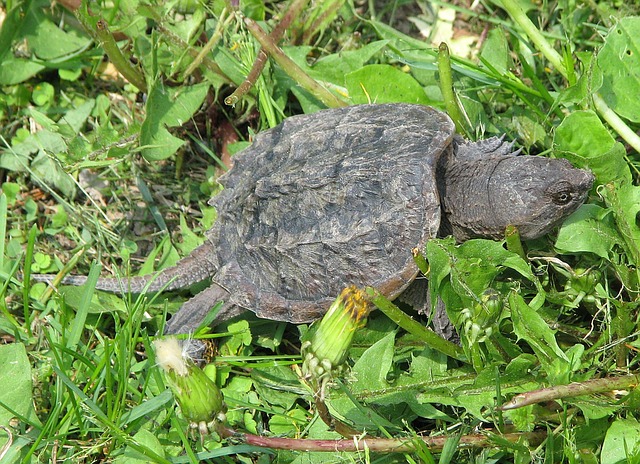
Common Snapping Turtles Don’t Make Good Pets
Owning a pet snapping turtle may seem like an exotic option when compared to other turtle species. While they are hardy and long-lived in captivity keeping snapping turtles as pets is not recommended for most people.
While a baby common snapping turtle may be cute when it’s fully grown it will need a very large enclosure. A pond or lake would be ideal and of course most pet owners cannot provide such a space. They also have sharp claws and a bite which can cause serious damage.
They Have A Powerful Bite
One of the most well-known characteristics of snapping turtles is that when they are threatened they have the tendency to bite. Not only are snapping turtle jaws strong but instead of teeth they have a hooked beak that is also razor-sharp beak. It is designed to easily cut through the flesh and bones of its prey and it can bite through a human hand.
Snapping Turtles Can’t Actually Fit Inside Their Shell
When threatened most turtle species can pull their bodies inside of their shells for protection. The common snapping turtle cannot. Its shell is too small. Instead its head, legs, and tail always remain outside of the shell.
Its Main Predator Is Man
Snapping turtle eggs and young are eaten by herons, foxes, skunks, minks, snakes, large fish, and raccoons. However because an adult snapping turtle is large, aggressive, and dangerous it has very few natural predators. Its biggest threat is humans. That’s because common snapping turtles are hunted for sport and used to make turtle soup and stew.
They Have A Snake-Like Neck
The scientific name of the common snapping turtle is Cheldra serpentine. “Serpentine” means “snake-like,” and refers specifically to its long neck. Its neck is also highly-mobile allowing the turtle to reach and bite at angles other turtle species cannot. Because of this the snapping turtle cannot be picked up safely in the same way most other turtles are.
It’s An Incredibly Cold-Tolerant Species
Like other reptiles all snapping turtles are cold-blooded. In other words their body temperature depends on the temperature of the air and water around them. However one of the most interesting facts about snapping turtles is just how cold-tolerant they are. While some common snapping turtles do hibernate others actually remain active all winter long even under the ice.
Snapping Turtles Can Travel On Land
While they do spend most of their time in the water, common snapping turtles will leave the water and travel on land to find new habitat or to lay eggs. This is the reason that they are sometimes encountered crossing roads. This species sometimes travels over surprisingly long distances.
They Were Once Used To Find Dead Bodies
One of the lesser-known snapping turtle facts is that in the past this species was used to help locate dead bodies underwater. A rope was tied around a snapper’s shell and it was released into the lake where the body was believed to be. When the turtle stopped swimming it was believed to have found the location of the body and started to feed on it.
Start Shopping for Snapping Turtle Traps!
Raccoon Pictures
Raccoons are easily recognizable by their black face mask and ringed tail. And there are many fascinating things about this intelligent nocturnal species. So we’ve compiled some of the best raccoon pictures to show you just how amazing and unique they are. Raccoon...
Eagle Pictures
Eagles are large powerful raptors with sharp talons and beaks. These apex predators are typically at top of the food chain and there are many interesting things about them. So we’ve compiled some of the best eagle pictures to show you just how amazing they are. Bald...
Nutria Pictures
Nutria are large semi-aquatic rodents from South America. In the United States where they were originally imported for the fur industry, they are an invasive species. Despite their pest status, there are many interesting things about them. So here are some of the best...
Stork Pictures
Storks are tall wading birds with long legs and necks. These amazing birds have many fascinating things about them. And we’ve compiled some of the top stork pictures to help show you just how interesting and beautiful they are. White Stork The white stork has a body...
Alligator Pictures
The American alligator is a large predatory reptile that inhabits the southeastern United States. It’s a fascinating animal with many interesting things about it. And we’ve collected some of the best alligator pictures to help show you just how amazing they are....
How Long Do Great Blue Herons Live?
The life expectancy of birds is known to be closely related to their size. So as the biggest heron species in North America, how long do great blue herons live? The average life expectancy for these large birds is around fifteen years. However, surviving their first...
Where Do Great Blue Herons Live?
The great blue heron is considered to be the most widespread heron in North America. So exactly where do great blue herons live? Here’s what you’ll want to know. Great Blue Heron Range The great blue heron is found throughout most of the North American continent. In...
Where Do Great Blue Herons Nest?
While many of us have seen great blue herons their nesting habits often remain a mystery to most people. That’s because they purposely nest in hard-to-reach places. So where do great blue herons nest? Here’s the answer. A Colony Nester Typically great blue herons nest...
Do Great Blue Herons Migrate?
Do great blue herons migrate? This is something many people wonder about, especially if they’ve seen a heron during the cold winter months. And the answer is both yes and no. Here’s what you’ll want to know. Great Blue Heron Range The great blue heron has a large...
Great Blue Heron Pictures
Few species of birds are as tall, elegant, and attractive as the great blue heron. So we’ve compiled some of the best great blue heron pictures for you to admire and help you to learn more about this amazing bird! Great Blue Heron Head The head of the great blue heron...
What Do Snapping Turtles Eat?
Many people are familiar with the fact that snapping turtles have an incredibly strong bite. They use their strong jaws and sharp beak not just for defense but also for catching food. So what do snapping turtles eat? Here's what you'll want to know. Snapping turtles...
Birds That Look Like Egrets
Egrets are predatory birds that hunt and live in a range of both freshwater and saltwater habitats. These birds are usually white, and have S-shaped necks, long legs, and dagger-like beaks. However, they are often mistaken for several other types of birds that look...
Birds That Look Like Storks
Storks are large wading birds with robust bills and long legs. These tall carnivorous birds are well-known for their wide wingspans and also for building huge nests. However, they are often confused with several other bird types that have a similar appearance. So...
Birds That Look Like Herons
Herons are tall birds with long slender legs and necks. And they often wade in the water when hunting for food. Yet there are several other types of birds that may be mistaken for them. To make things more confusing many of these birds also spend time in the water and...
Great Blue Heron Facts
The great blue heron is named for its size and the grey-blue color on its wings, stomach, and back. This species has many fascinating things about it. So here are the top great blue heron facts. It's The Largest North American Heron The great blue heron is a big bird...
Are There White Herons?
Are there white herons? This is something many people wonder especially after seeing a tall all-white bird. The answer is yes! And here’s a fast introduction to them. A White Color Morph Most people are familiar with the great blue heron, a large predatory and...
Great White Heron Facts
While many people are familiar with the great blue heron, they are often surprised to find out that there’s also a great white heron. There are many things you’ll want to know about this stunning bird. So here are the top great white heron facts. The Great White Heron...
What Animals Eat Herons?
Because of their size and long sharp beaks, it can be hard to imagine that herons have any natural predators. While they do, they definitely don’t have nearly as many predators as most other types of birds. So what animals eat herons? Predators Of Adult Herons For...
What Do Herons Eat?
Great blue herons are often seen slowly wading in shallow water hunting for food. You may have even spotted one of these large birds in your own backyard pond. This leaves many people wondering: “What do great blue herons eat?” And here’s everything you’ll need to...
What Do Green Herons Eat?
The green heron is a secretive and small heron species. What it lacks in size however it makes up for in intelligence. It is particularly well-known for how it uses its smarts when hunting for food. So what do green herons eat? Read on to find out. Meet The Green...
